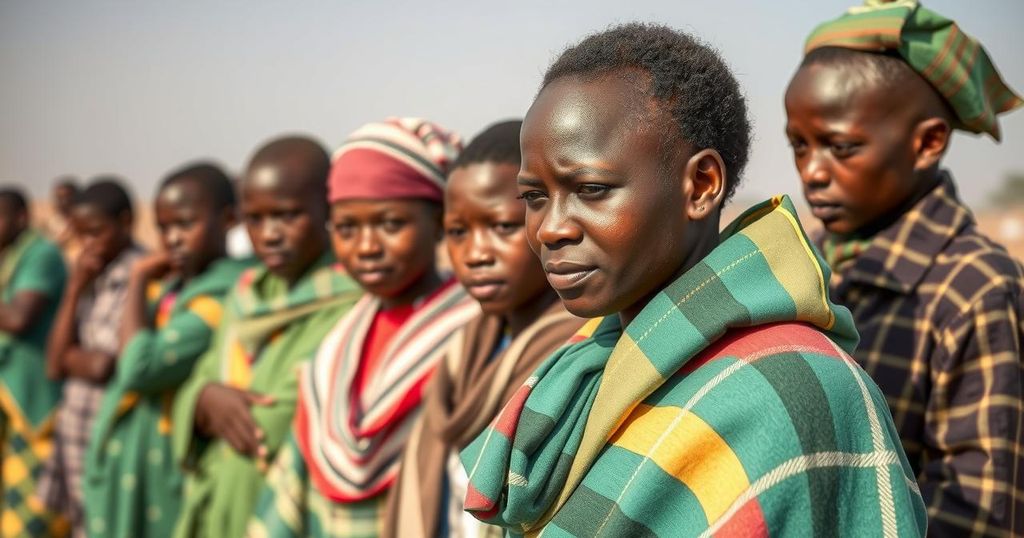Re-membering South Sudan: Pathway to Sustainable Peace

This article examines the enduring crises in South Sudan, emphasizing the need for a process of re-membering to address historical injustices stemming from colonial rule and civil conflict. It argues that sustainable peace cannot be achieved without confronting the collective traumas and establishing a social contract characterized by inclusivity, justice, and accountability. Engaging all segments of society in open dialogues and formulating a new governance framework are essential steps in the journey toward peace and healing for the nation.
South Sudan, the newest sovereign nation globally, finds itself characterized by ongoing conflict, insecurity, and humanitarian crises, yet these are not isolated occurrences stemming solely from 2013 power struggles. The core issues stem from historical injustices rooted in colonial conquest, ethnic division, and systemic inequalities that have persisted over generations. For sustainable peace to manifest, South Sudan must engage in a transformative process of re-membering, which entails confronting its historical traumas and establishing a just framework for coexistence. This article underscores the necessity of addressing historical grievances, advocating for national dialogues, and forming a new social contract to guide governance and coexistence in South Sudan.
The first aspect of these challenges is to recognize that the conflicts in South Sudan are deeply historical. Years of colonialism and conflict have created a fabric of division and strife. The period of Turko-Egyptian rule, followed by British colonial governance, contributed to socio-political fragmentation. Colonial powers exacerbated ethno-nationalistic sentiments, ensuring that the diverse societies within South Sudan were pitted against one another to serve exploitative agendas. This traumatic history has left lingering wounds that continue to complicate modern governance and societal cohesion.
Addressing the historical injustices is paramount. Acknowledging the wrongs inflicted both by colonial powers and through internal conflict is crucial for healing. The collective acknowledgment that the issues South Sudan faces today have roots in historical trauma can pave the way for reconciliation and justice. Inclusive community dialogues that incorporate voices from all segments of society, including women, youth, and former combatants, are necessary to build a shared narrative that emphasizes common humanity while addressing grievances beyond tribal affiliations.
To foster a durable peace, South Sudan needs to engage in extensive dialogues leading to a social contract that redefines power-sharing and resource allocation, thus addressing the inequities that fuel ongoing strife. This contract must stem from broad-based representation and collective interests rather than the historical patterns of exclusion and division. Additionally, South Sudan should prioritize the establishment of transitional justice systems to address past wrongs and promote continual healing through local and traditional conflict resolution methods.
Lastly, the introduction of an ongoing and proactive engagement mechanism to address injustices and support social and economic development is vital. Implementing infrastructure projects and educational initiatives that reflect the cultural heritage of the diverse communities within South Sudan would be instrumental in rebuilding trust and societal cohesion. Only through a unified approach centered on collective identity and shared history can South Sudan hope to emerge from the cycle of violence and instability.
An understanding of South Sudan’s formation is essential to address its current crises. Established in 2011, South Sudan’s path to nationhood lacked a foundational agreement on coexistence among its diverse ethnic groups. The manipulation of ethnic divisions by colonial powers has led to a fractured national identity, one that is still haunted by the traumas of past colonization, inter-ethnic competition, and the scars of civil wars. Without ignoring this historical context, it remains impossible to map out a sustainable future for South Sudan. Thus, recognizing history’s role in shaping contemporary conflicts is crucial for any peacebuilding efforts.
In conclusion, South Sudan stands at a crossroads where it must confront its historical burdens in order to attain a sustainable peace. A process of re-membering—recognizing and addressing the historical injustices and constructing an inclusive social framework—will be essential. By fostering dialogues that address both external and internal grievances and forming a new social contract that prioritizes equity and justice for all, South Sudan can transform its patchwork of communities into a cohesive nation unified by shared aspirations and dignity. The journey toward healing and reconciliation is long but necessary to fulfill the nation’s promise of independence and well-being for its people.
Original Source: www.radiotamazuj.org








